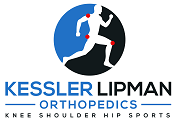Introduction
Anatomy
When you are exposed to an allergen, your white blood cells produce antibodies. The antibodies trigger the release of histamine and other chemicals in your blood called mediators. The mediators can cause hives to appear on the skin. Deep hives that are located on the face near the eyes or lips are termed angioedema.
Causes
Symptoms
The welts may come and go. Hives can last as long as a day or weeks. Chronic hives last more than six weeks, and in some cases for months or years.
Diagnosis
Treatment
Prevention
Am I at Risk
You may be at risk for hives if you have:
• had hives before.
• experienced allergic reactions.
• a medical condition that can cause hives.
• family members that get hives.
• been exposed to allergens or triggers that cause your hives.
Complications

Copyright © - iHealthSpot Interactive - www.iHealthSpot.com
This information is intended for educational and informational purposes only. It should not be used in place of an individual consultation or examination or replace the advice of your health care professional and should not be relied upon to determine diagnosis or course of treatment.
The iHealthSpot patient education library was written collaboratively by the iHealthSpot editorial team which includes Senior Medical Authors Dr. Mary Car-Blanchard, OTD/OTR/L and Valerie K. Clark, and the following editorial advisors: Steve Meadows, MD, Ernie F. Soto, DDS, Ronald J. Glatzer, MD, Jonathan Rosenberg, MD, Christopher M. Nolte, MD, David Applebaum, MD, Jonathan M. Tarrash, MD, and Paula Soto, RN/BSN. This content complies with the HONcode standard for trustworthy health information. The library commenced development on September 1, 2005 with the latest update/addition on February 16, 2022. For information on iHealthSpot’s other services including medical website design, visit www.iHealthSpot.com.


